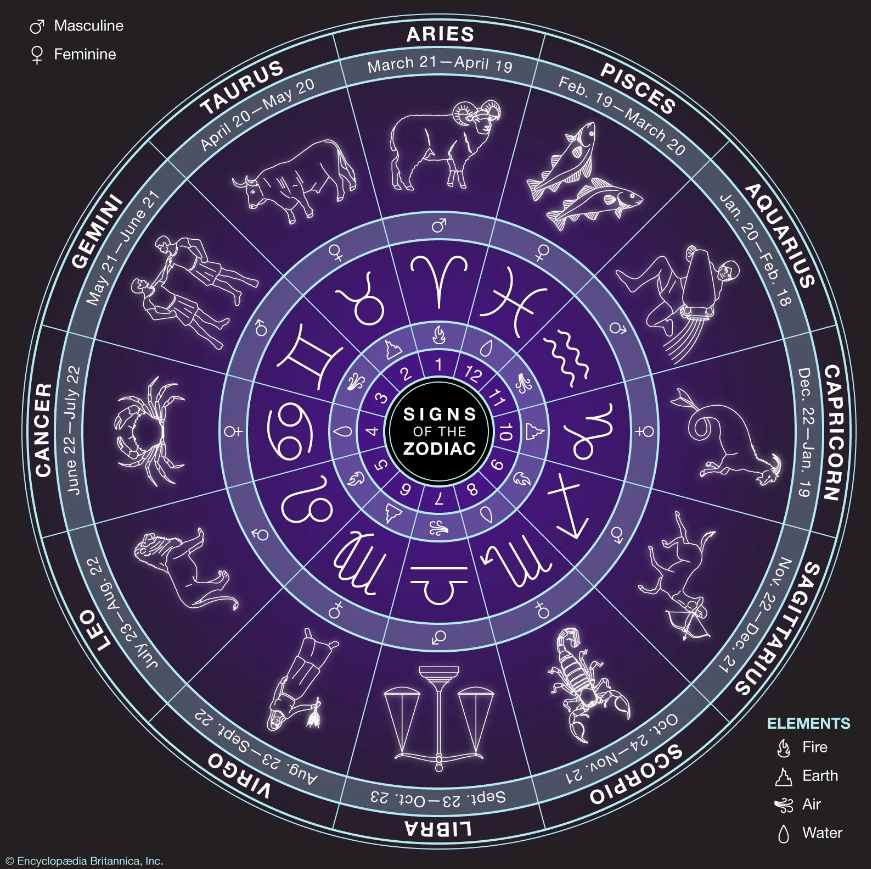
The twelve Zodiac signs are the most famous (and infamous, if you talk to scientists) way of imposing order and grouping onto our lives. Personality tests, Harry Potter houses (which have to be the laziest version out there), “What sandwich am I?” quizzes, these all apply a person’s traits and responses to fundamental questions about their being to give them their best “match” for whatever category is being used on that particular day.
Generally, these are harmless, joking fun. They are a source of gossip and lighthearted passing of the time, comparing your result to your friend’s and whatnot. But the Zodiac is very real – at least to the followers of astrology.
A quick summary of the Zodiac is that its believers think that the position of the sun and the stars has influence on the events in people’s lives, and that these events will change depending on the Zodiac of the present day, as well as when that person was born. These believers also say that a person’s Zodiac influences their behavior. To be clear, this is a pseudoscience. Astrology is an unfalsifiable theory. Does the position of astronomical objects have an effect on the personality and behavior of humanity? Common sense says no, but even if you wanted to humor the idea, it is impossible to test. Sure, some descriptions of how a Taurus or Gemini behave will match up with people born under those signs, but this is only due to random chance.
And this leads to the bigger point of my thoughts. The Zodiac is simply the most popular and non-religious phenomenon of trying to apply order, logic, and meaning to what is inherently a random existence. Why do we exist alone in a universe unfathomably massive? The idea that we just happened and that our lives could easily have never formed to begin with is a frightening one. A few random coin flips hundreds of millions of years ago, and the formation of Earth is altered, and perhaps humanity never evolves and we never exist. That we are all stumbling through life on a giant rock that might as well be non-existent on the universal scale with no end goal in sight is sobering.
But if existence is random, then that means life is random in the sense that we are capable of doing what we want – within the constraints of physical, economical, and societal material conditions. There is no set path; no “fate” we are bound to.
Leave a comment